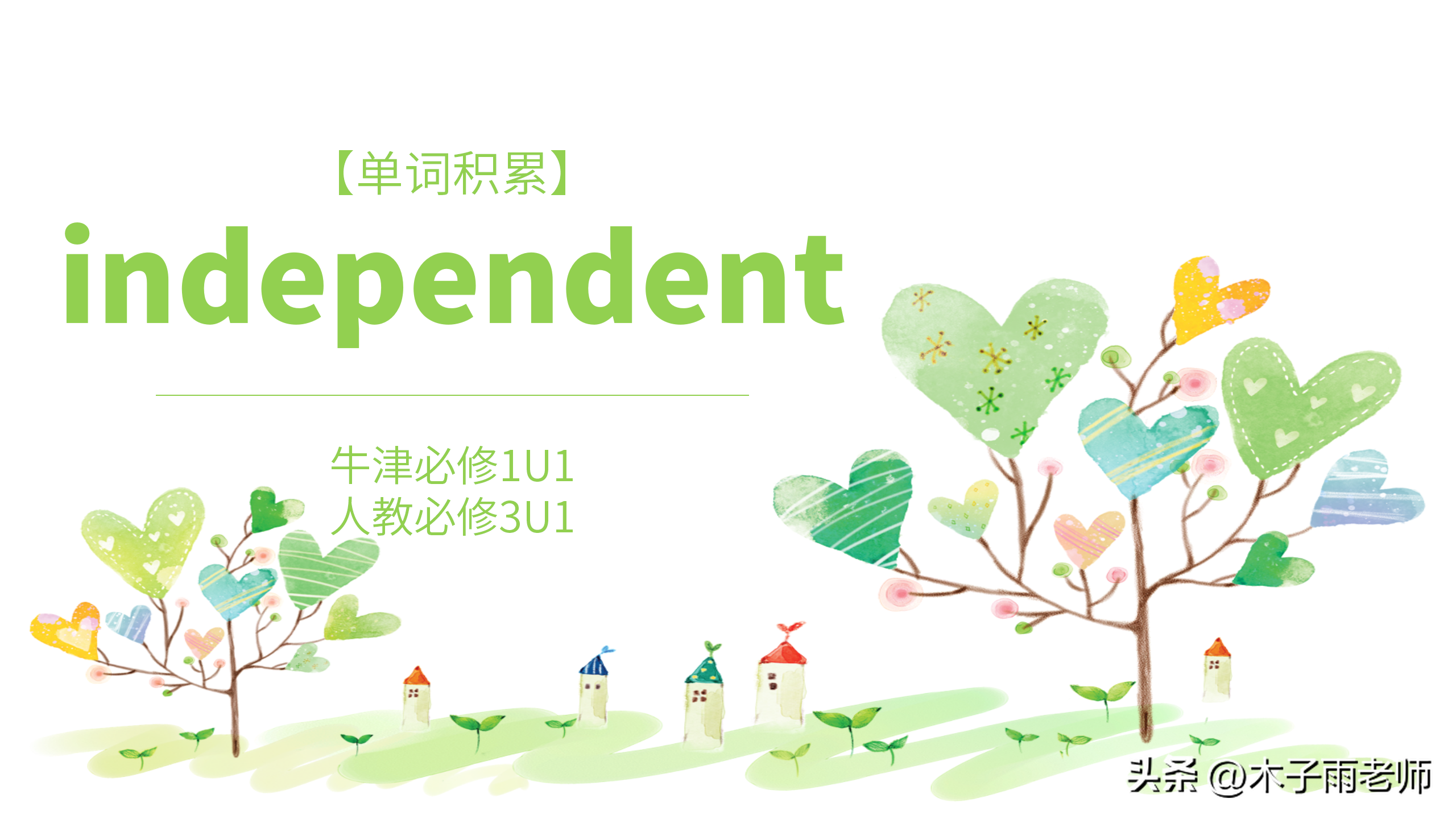
independent/ˌɪndɪˈpendənt/adj. 自主的,有主见的;自立的
一、单词记忆
初中的时候我们学过一个单词,depend,动词,意为“依赖,依靠”的意思。在它后面加上ent,形容词后缀,dependent就是一个形容词,意为“依赖的,依靠的”,然后再在前面加上in,否定前缀,independent就是不依赖的,不依靠的,这个就是“自主的,有主见的;自立的”。
二、单词例句
Going away to college has made me much more independent.
离家上大学使我变得独立自主得多。
《牛津词典》
三、拓展
1.dependent/dɪˈpendənt/adj.依赖的,依靠的;取决于;有瘾的
人们越来越依赖互联网。(dependent)
People have become /been/are becoming more and more dependent on the Internet.

[巩固练习]翻译句子
凡是想要生存的人都要依靠社会。(dependent)
Whoever wants to survive must be dependent on society.
2.independently/ˌɪndɪˈpendəntli/adv.独立地;自立地(GRE)
[巩固练习]翻译句子
1.只有我们成熟并失去母亲的保护伞,我们才会开始独立生活。(Only)
答案:Only when we grow mature and lose our mother’s protection umbrella will we be able to live independently.
注意:only后接时间状语位于句首,主句部分倒装
2.他进公司后不久就独立完成了一项艰巨的任务,同事们对他刮目相看。(so)
答案:He finished a difficult task on his own / independently soon / shortly after he entered the company, so his colleagues looked at him with new eyes / regarded him in a totally different light / treated him with increased respect.








